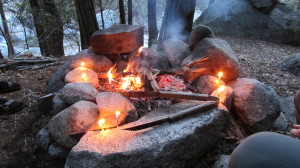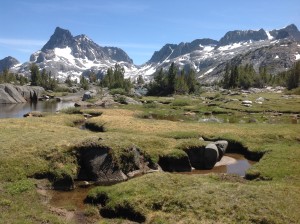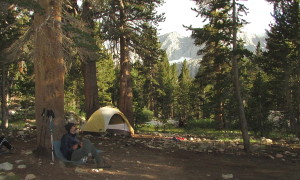When passions heat, learn to spiritually stop, drop and roll
Fresno Bee, August 29, 2014
We live in a flammable world. Wildfires scorch the countryside. Anger boils over in the streets. Proverbial powder kegs are hidden everywhere.
Stability and peace are temporary in a world ruled by heat and fire.
Our language is full of fiery imagery. Plagues, protests, wars and ideas can “spread like wildfire.” Fads catch fire and take off. An interest is sparked. A torch is passed. People and ideas burn out.
Ancient civilizations viewed fire as elemental. Some Greek philosophers described the world as an eternal, living fire. The Stoics taught that the universe was periodically consumed in a cosmic conflagration.
In the Bible, God is described as a burning bush and a consuming fire. Jesus said that he had come to set fire to the earth. Christians still speak of being set ablaze by the Holy Spirit and the fire of faith. But fire is also associated with the devil. This indicates our ambivalence about fire. It is both good and evil.
The Buddhist tradition warns against playing with fire. The Buddha once said that all things are on fire: the world, the body and the mind. Liberation is found in taming passion and its pyrotechnics. Nirvana can be understood as blowing out a flame, while leaving its light.
Fire and passion can enliven and destroy. We are both masters of fire and its victims. Passion is the energy of life. But it can disrupt peace. Jealousy, resentment, infatuation and greed can smolder and burst into flames. But ambition and the “fire in the belly” give meaning and purpose to life.
Civilization is a process of domesticating both fire and passion. Homo erectus used fire more than half a million years ago. But homo sapiens used it to take over the earth. We burned forests to clear land for farms. We captured fire and controlled it, eventually learning to burn coal, gas and oil. These combustibles fueled the industrial revolution.
But dangers remain. Famous fires burned down Rome, London and San Francisco. Inflamed passions continue to spark conflict and disorder. And every fire leaves behind smoke and ash. The fires of the industrial revolution produced a smoldering climate. Passionate violence has left smoldering ruins across the world.
Fire prevention and management can provide a guide for living. Put out little fires before they blaze into raging infernos. Clear away the junk and undergrowth that can feed the flames. Prevent sparks from flying when possible. Keep a tight lid on your really flammable stuff. Make sure you know where the fire extinguisher is. And when passion flares up, take a deep breath and spiritually stop, drop and roll.
Once a fire is blazing ethical questions arise. We might attempt to fight fire with fire, as the saying goes, lighting backfires, bringing in the big guns, and unleashing awesome firepower. You may have to destroy some things in order to save others. But that is not always just or wise. Escalation is a worry, as is blowback.
Sometimes it is wise to let fires burn themselves out. A small controlled fire can consume the fuel that could cause a larger conflagration. Just as fever helps cure disease, outbursts of furious rage can burn up emotional energy.
There is some wisdom in those traditions that fear the flames of passion. But the fire in the belly is not always bad. The key is to harness our spiritual energies, just as we do with the controlled explosions of the internal combustion engine. Ambition, pride and the desire for justice need a productive outlet.
Fire and life have co-evolved. The burning sun is the source of life. And every human birth begins in hot-blooded desire. Our passion makes life interesting and worth living.
The giant sequoias provide a lesson. Their thick resilient skin keeps them standing through centuries of forest fire. Their seeds need fire to germinate. Like the sequoia, fire and passion can make us stronger and help us give birth to new growth that emerges from the flames.
Some dream of a calm, cool world. But icy equanimity can’t sustain life. We inhabit a flammable planet. Our bodies and souls are combustible. Wisdom lies in knowing when to light a flame and when to blow one out.





